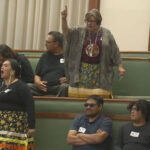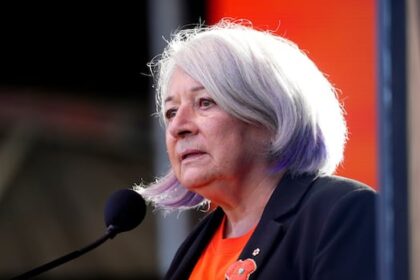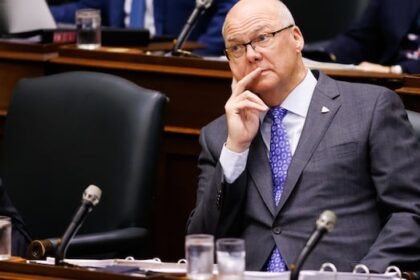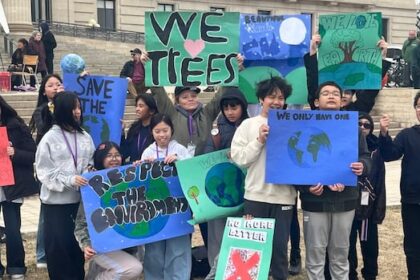First Nations Summit’s political executive and member of the Leadership Council in B.C. Robert Phillips said he’s heading to Ottawa to talk with senior officials next week about how First Nations fit in with Canada aiming to become an energy superpower. This comes as the federal and provincial governments introduce legislation to fast track resource and other projects to protect the economy and First Nations leaders are deciding how best to protect treaty and inherent rights. On May 28 the B.C. government passed Bill 14-the Renewable Energy Projects Act and Bill 15-the Infrastructure Projects Act which it said are needed to respond to the threat of United States tariffs. The bills are both designed to expedite the approval of certain projects in British Columbia. Bill 14 focuses on streamlining the permitting process for renewable energy projects, while Bill 15 aims to do the same for infrastructure projects deemed “provincially significant”. “When we had discussions with the premier [B.C. Premier David Eby] and [Infrastructure] Minister Ma, they did apologize and say ‘yes, we moved this along’ but they were still going to go ahead without proper consultation,” Phillips told APTN News. The federal government tabled legislation Friday that it hopes will push projects of “national interest” through to the approval stage in two years rather than the normal five. In the bill, Ottawa promises that there will be full consultation with Indigenous communities before any project is approved. It also said it’s providing money for communities to get involved in the process and assemble an Indigenous Advisory Council to help guide proposed projects. Government officials said a few dozen communities were asked to provide their feedback on the legislation. But ahead of the passage of the bills in B.C., First Nations expressed their frustration with the provincial government over a lack of consultation. Phillips has predicted there will be conflict, litigation and protests. “Of course we fear and do not want to see more litigation because that would just mean more court cases that are very costly to First Nations as well as the Crown,” Phillips said. “If there’s going to be exceptions to legal and regulatory process that’s very concerning to us. “So, we will have to react and I know people on the ground react in certain ways, especially if it’s in their own backyard, in their territories,” Phillips said of any grassroots action. The Assembly of First Nations will hold an emergency meeting next week to discuss the implications of the federal legislation. National Chief Cindy Woodhouse Nepinak met Thursday with Prime Minister Mark Carney about his government’s new bill. She said she remains “deeply concerned” about the federal legislation’s potential impact on First Nations. “First Nations support efforts to protect Canada from economic uncertainty and advance resource revenue sharing agreements,” she said, “However, First Nations are very concerned that this proposal may violate many collective rights … Failure to obtain free, prior and informed consent will likely result in protracted litigation.” In Ontario, a number of First Nations are pushing back against the province for ramming through legislation that will allow the government to ignore environmental and municipal laws to push through development projects. One of the first projects on the list to be designated a “special economic zone” is an area in northern Ontario called the Ring of Fire. While a couple of nations are in favour of the development – many are not because they see their role as protectors of water, wildlife and the environment. Phillips said a message he will take to the next AFN assembly is for First Nations to cooperate with each other. “We will have to work together to protect our inherent, constitutional, human rights, title and jurisdiction,” Phillips said. “Whether it’s through the U.N. declaration or whether it’s through your treaty or whether it’s through any other treaties, agreements, or other constructive arrangements. “We have to get to that place where we’re working together and doing something about it.” Phillips acknowledged there are some First Nations in B.C. who are in support of development in their territories. The Nisga’a Lisims Government supports economic development in the Nass Valley, particularly infrastructure and resource projects like LNG and pipelines, as they believe these initiatives can bring long-term benefits to the Nation and the province. Phillips said other nations are working out cooperative agreements. “We’re starting to see if these bills do not have consent in them, then we will need consent-based agreements. Of course, that wasn’t properly discussed with us,” said Phillips. The B.C. government announced one such agreement Friday. “The Tŝilhqot’in Nation, the Province and Taseko Mines Limited (Taseko) have announced the signing of the Teẑtan Biny Gagaghut’i Agreement to resolve the long-standing conflict over the “New Prosperity” mineral tenures in the Teẑtan Biny (Fish Lake) area of Tŝilhqot’in territory,” a news release said. Under the agreement any future mineral exploration and mine development in the New Prosperity mineral tenure area will require consent of the Tŝilhqot’in Nation. “Additionally, the Province and the Tŝilhqot’in Nation have entered an agreement that requires the consent of the Tŝilhqot’in Nation for any mine in the Teẑtan Area that is a reviewable project under the Environmental Assessment Act to proceed,” the release said. The province and Tŝilhqot’in Nation are expected to negotiate to set out the process for how this requirement for the nation’s consent would be addressed in any potential environmental assessment process. “We don’t want to see direct action happen in British Columbia and across Canada so we’re telling the premier and the Prime Minister and maybe even the premiers from other provinces and territories to take care of you backyard before you sit down with other premiers discussing major projects without having First Nations at the table,” Phillips said. Tags: B.C., Bill 14, Bill 15, Crown, fast track development, First Nations, First Nations Summit, litigation, LNG, Nisga’a Lisims, pipelinesTŝilhqot’in Nation, Prime Minister Carney, Taseko Mines Limited Continue Reading
First Nations in B.C. to meet with senior officials in Ottawa to discuss project legislation

Leave a Comment










